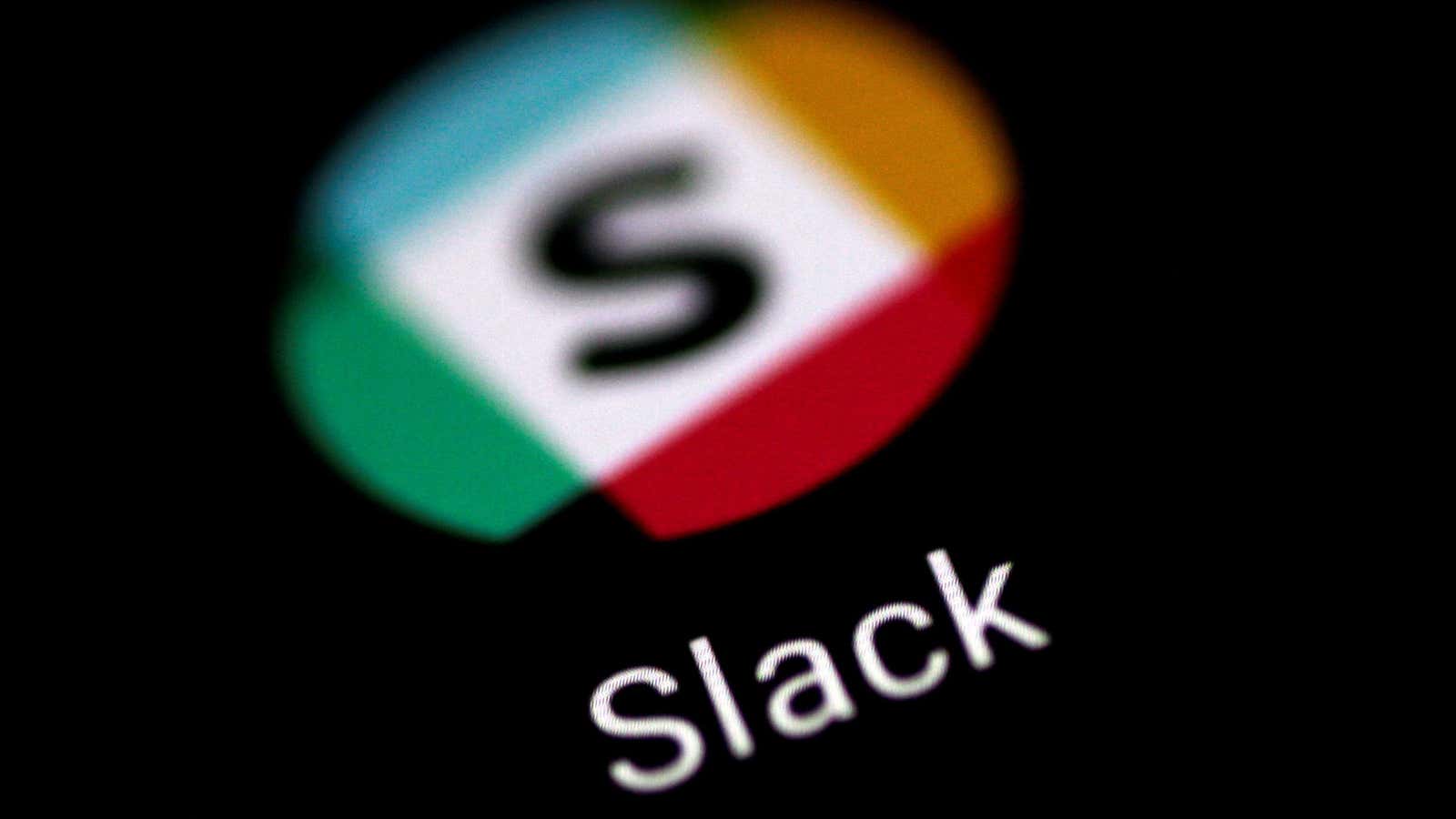Slack is getting ready to go public. The ubiquitous work collaboration tool known for its cheerful logo and do-gooder ethos announced the move today (Feb 4), but did not disclose details of its listing plans.
Since its founding 10 years ago, Slack has become a Silicon Valley powerhouse valued at $7.1 billion, according to private equity research firm PitchBook. Last year, it said it had 8 million daily active users and 3 million paid users.
Today’s announcement indicated Slack had filed draft documents with the US Securities and Exchange Commission confidentially. The listing is “expected to take place after the SEC completes its review process,” Slack said.
Last month, the Wall Street Journal reported Slack intends to pursue a direct listing, rather than list through the traditional process of selling shares at a set price and securing investors in advance. Instead, shareholders (rather than the company) can sell their shares directly in the public offering. If Slack chooses this path, it will follow in the footsteps of Spotify’s successful direct listing last year. The move allowed the company to avoid steep fees from investment banks, and lockup periods for insider shareholders. Direct listings make sense for companies that don’t need to raise funds, but want to give employees and early investors the opportunity to cash out.
Founded in 2009, Slack emerged from the ruins of a failed game company called Tiny Speck, which shut down in 2012. Tiny Speck’s team was dissatisfied with the communication tools available at the time and built what ultimately became Slack along the way. Its whimsical aesthetic and developer-friendly design made it an instant hint with software startups, newsrooms, and soon many others. Early adopters spread the gospel to small and mediums businesses, and then Slack took a shot at the enterprise space. The company has grown from 22 people in 2011 to more than 1,000 today.
Slack is now the dominant workplace communication and collaboration tool. Over the last five years, it managed to eclipse almost every major competitor in the space. One of the largest, Atlassian, offered HipChat and later Stride. But Atlassian announced it is retiring both products by this month. and leaving the communication business entirely in favor of project management. A “partnership” Atlassian struck with Slack last year sent its former rival the IP behind HipChat and Stride, and migrated its customers over to Slack, which also got a small equity investment from Atlassian in the deal. That leaves Microsoft’s Teams. In 2016, Microsoft tried to acquire Slack for $8 billion, and failed. Microsoft said last March that Teams is used by 200,000 organizations, up from 50,000 when it launched in 2017.
